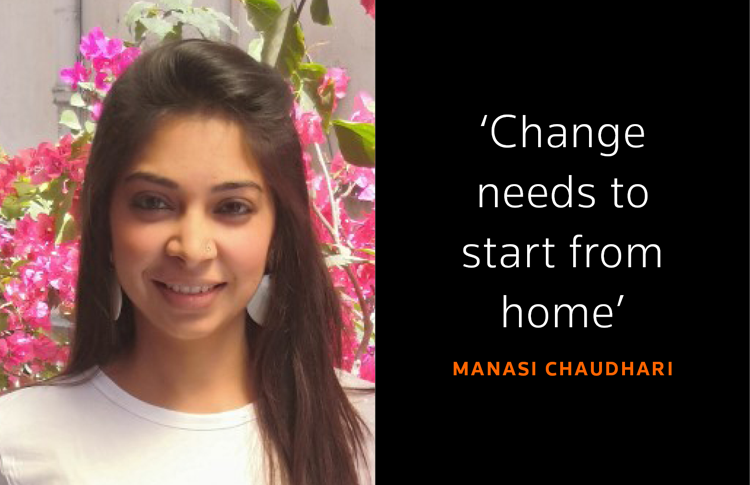
Pink Legal is India’s first-ever website dedicated to women’s laws and rights. Manasi Chaudhari, founder and CEO of Pink Legal, talks about the impact of the COVID-19 lockdown on women, and why there are so few female lawyers in the country.
ALB: You started Pink Legal about six months ago. What have been some of the highlights of the past six months?
Chaudhari: Pink Legal has received a phenomenal response from women all over India, and also overseas, like the U.S., UK, UAE and other countries. Within six months, we have garnered more than 6,000 followers, all organic. The immense outreach and overwhelming love that Pink Legal has been getting has definitely been the best highlight! Apart from that, watching Pink Legal grow from an idea to a full-blown organisation with a large team is also a memorable highlight.
ALB: The recent lockdowns in India are believed to have been very difficult for women, particularly those trapped in unsafe living conditions. What are some of the issues you’ve witnessed during this time?
Chaudhari: We have seen a large number of domestic violence victims reaching out to us. In fact, most of the women who reach out to Pink Legal are facing harassment of some form through their family members. Since we launched just before the lockdown (Mar. 8, International Women’s Day), I am not sure whether domestic violence is a result of the lockdown or has always been prevalent. However, what is for sure is that women seem to face tremendous amounts of harassment at home.
ALB: What are some of the key areas where legal protections for women are lacking? What kinds of legislation should be introduced to address these?
Chaudhari: Some of the key areas where we need additional legal protection for women are cybersecurity and domestic violence. We need legislations which make it illegal to harass women online, sending them or their family members rape threats and death threats, sending unsolicited vulgar pictures and so on. We also need laws which make it illegal for a husband or in-laws to snatch away a woman’s earnings or her stridhan. But more than anything else, we need better implementation of laws on ground.
ALB: In a speech given by Justice Dhananjaya Chandrachud in 2017, he noted women make up only five percent of India’s legal profession, and two percent of its senior advocates. What more needs to be done to encourage an increase in women in the profession?
Chaudhari: Firstly, change needs to start from home. We have to stop burdening women with family and household responsibilities, and these need to be divided equally between all members of the house, irrespective of gender. Only then will women be able to give their 100 percent to their profession without being pulled back. Secondly, we need better infrastructure which enables women to be a part of the profession. For example, designated areas and bathrooms for women lawyers in court, moving to virtual hearings as much as possible, childcare support and so on.
ALB: What are your plans for Pink Legal? What role would you like it to play?
Chaudhari: I don’t believe in planning too much, because I believe that life always guides you to the right path. Therefore, I don’t have any set plans for Pink Legal. That being said, I want Pink Legal to grow and empower every woman in India with the knowledge of her legal rights.
To contact the editorial team, please email ALBEditor@thomsonreuters.com.
